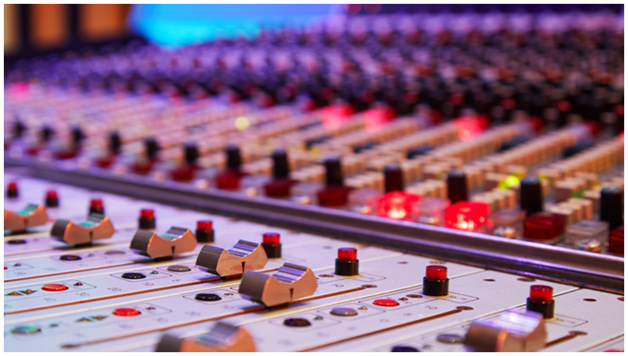
Starting out as an EDM producer can be both exciting and overwhelming. With endless plugins, genres, and techniques to explore, it’s easy to get caught up in experimentation while overlooking some fundamental practices. Whether you’re aiming to create festival-ready bangers or smooth, downtempo vibes, avoiding these common pitfalls can save you time and frustration.
Here are six mistakes many new EDM producers make—and how to avoid them on your path to creating polished, professional tracks.
1. Overcomplicating the Mix
One of the most common traps new producers fall into is trying to cram too many layers into a track. Stacking five synths, three bass lines, and ten percussive elements might feel like you’re adding richness, but it often leads to a cluttered, muddy mix. In EDM, clarity and impact are essential.
How to avoid it: Focus on a few well-chosen elements that serve a purpose. Start with strong foundational sounds—kick, bass, and lead—and build around them strategically. Use EQ and panning to give each sound its own space in the mix. Remember, minimal doesn’t mean boring—it means intentional.
2. Ignoring Arrangement Structure
Many new producers get stuck in loop land—creating an 8-bar fire loop that never evolves into a full track. Without understanding arrangement, it’s easy to lose momentum and leave tracks unfinished. EDM requires dynamic builds, breakdowns, and drops to keep listeners engaged.
How to avoid it: Study the structure of your favorite tracks. Most EDM songs follow a predictable layout: intro → build → drop → breakdown → build → drop → outro. Use markers in your DAW to map out a structure before filling it in. This gives your ideas direction and flow.
3. Using Presets Without Tweaking
Presets can be useful, especially when you’re learning sound design. But relying on them too heavily—and without customization—can make your music sound generic. Many other producers are using the same sounds straight out of the box.
How to avoid it: Use presets as a starting point, not the finish line. Tweak parameters like filter cutoff, envelope settings, or modulation to shape a unique tone. Better yet, start learning synthesis and sound design fundamentals to create your own signature sounds. That’s how your music stands out in a crowded genre.
4. Neglecting Sound Selection
Just because a sound is loud or flashy doesn’t mean it fits your track. Poor sound selection—such as clashing synths, overly harsh leads, or ill-fitting samples—can sabotage an otherwise solid composition.
How to avoid it: Think like a curator, not just a creator. Choose sounds that serve the mood and energy of the track. When you audition a sample or preset, ask yourself: does this support or distract from the core vibe? The better your raw materials, the less processing you’ll need later.
5. Skipping the Mixdown Process
Many beginners rush from production to release without taking time to properly mix their track. A poorly mixed track can sound flat, muddy, or imbalanced, even if the musical ideas are strong. EDM relies on punchy drums, crisp highs, and tight low end—none of which happen by accident.
How to avoid it: Give yourself time and space for a dedicated mixdown session. Use reference tracks to compare levels, EQ balance, and stereo width. Take breaks to avoid ear fatigue. Learn the basics of compression, reverb, and gain staging so your mix translates well across systems—from earbuds to club speakers.
If you’re serious about getting it right, it can be incredibly helpful to earn a music production degree, where you’ll gain hands-on experience and mentorship in areas like mixing, arrangement, and electronic sound design.
6. Failing to Finish Tracks
Perfectionism is the enemy of progress. Many new producers start dozens of projects but never finish one. Maybe the drop doesn’t hit quite right, or you can’t decide on a snare. But leaving tracks in limbo prevents growth and denies you the chance to learn from each full cycle of creation.
How to avoid it: Set deadlines for yourself—even if it’s just for practice. Learn to accept imperfections and finish your tracks anyway. Every time you complete a project, you learn valuable lessons that will improve your next one. Finishing music consistently is one of the best habits you can build as a producer.
Producing EDM is a journey of continuous improvement. These early-stage mistakes are normal—but they don’t have to slow you down. By focusing on clarity, structure, sound design, and discipline, you can elevate your skills faster and start creating music that resonates.
And remember, while self-teaching is a great starting point, structured guidance can make a big difference. If you want to deepen your understanding and refine your workflow, you can study music production to get real-world training in both the technical and creative sides of production.





